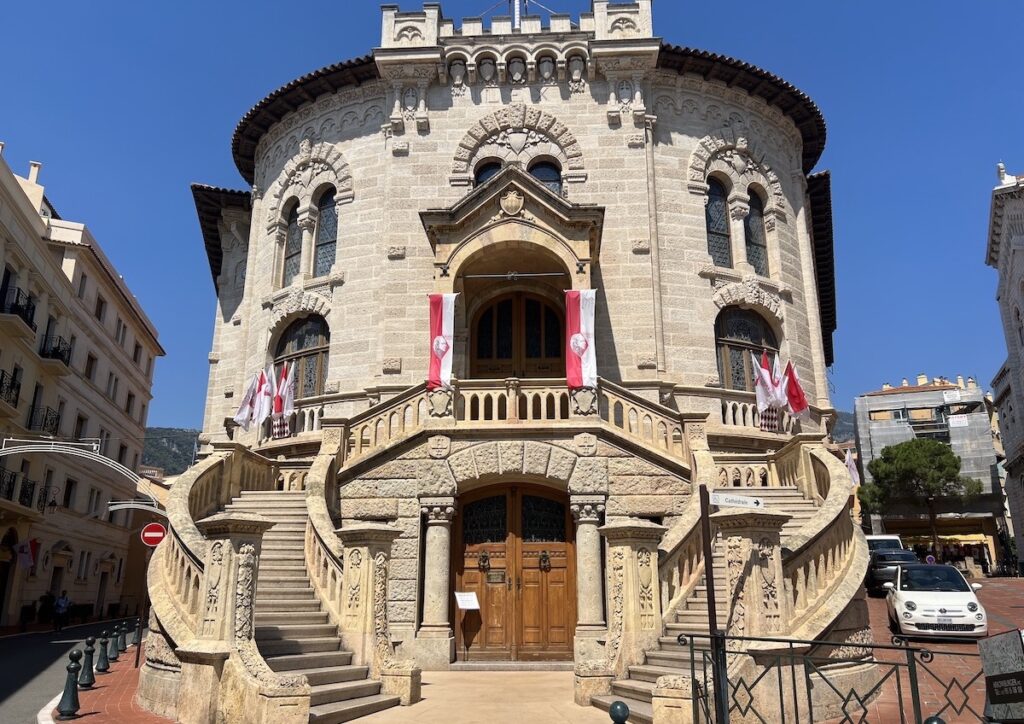Man intercepted in Monaco with bag containing undeclared sum of $21,000

An Israeli national was stopped at the Principality border with a large sum of money. He explained that he was unaware of the requirement to declare it to Monegasque customs.
On Tuesday 28 October, the Monaco Criminal Court tried an Israeli citizen, born in 1965 in Tel Aviv, now a real estate agent living in Dubai. Assisted by a translator, he was appearing for failing to declare a sum in excess of €10,000 as he attempted to enter Monaco. The events date back to 9 April 2025. That day, he was stopped in a rental car, a Mercedes Maybach, at the Principality’s border. The police discovered 21,620 US dollars, or around 19,519 euros, in a saddle bag. No prior declaration had been made.
On the stand, the defendant calmly explained: “I was with my wife. A woman can’t walk around with that much money on her, or she’ll get robbed.” The presiding judge immediately retorted: “That’s hardly the point. You were carrying an undeclared sum of money. He must declare it as soon as he crosses a European border. If he is carrying €20,000, he must report it.” The defendant tried to explain: “When he arrived in France, he had already declared €10,000 for his wife and €10,000 for himself,” said the interpreter. “We are not in France,” the court replied.
The translator continued: “He says he didn’t know, that he’s not a thug. He thought the same applied to Monaco. He knows now. It was his first time here.”
Questions over the source of the funds
Asked about his income, the man explained that he works for a property company run by his wife, and earns around 10,000 dollars a month. The court president then read out the statements he had made when he was questioned: “You said you earned 20,000 dollars.” The defendant disputes this: “The police officers misunderstood.”
The president then focused on the bank statements submitted to the court: different cash withdrawals of 5,000 dirhams, sometimes several times a day. In July 2024, ten such withdrawals were made. “I don’t do that every day,” the defendant said. The court pointed out that other withdrawals were made in April and June. “He says in Dubai, he can withdraw whatever he likes,” translated the interpreter. The chairman asked: “If you are free to make withdrawals, why ten 5,000 dirham transactions instead of a single withdrawal?” The man replied that “the bank sets a limit of 5,000 dirhams.” The court continued: “What is the point of withdrawing 50,000 dirhams a day?” The defendant finally said: “I had to pay for the flat, the staff, the kid’s school…” then “I took the money out for the holidays.” The court noticed the inconsistency: “We need to know whether it’s for your holiday or to pay the staff.”
The prosecutor asked for a fine of €10,000 and confiscation of the funds. He reminded the court of the provisions of article 72 of law no. 1.362 of 3 August 2009, as amended: “Failing to make a declaration or making a false declaration is punishable by a fine equal to half the amount, without prejudice to the possible seizure and confiscation of the cash.”
He stressed the requirement to declare any sum in excess of €10,000 and to justify the source of the funds:
“He was stopped with a satchel containing 21,620 dollars, well over the authorised threshold. We are not convinced by his explanations about the withdrawals. They raise more questions than answers.” The court pointed out his clean French and Monegasque criminal records.
“He’s not a trafficker, he cooperated from the start”
The defence took a measured tone: “We are dealing here with a breach of a duty to declare. My client made no attempt to conceal anything. He cooperated from the outset, explaining where the money had come from and showing the statements from his banks in Dubai.” He continued: “He made enquiries at the airport and at his hotel in Nice. He thought the same rule applied. It’s a normal reflex to keep your money with you, like a wallet. He didn’t want to leave it at the hotel.” The lawyer concluded that his client had nothing to hide and asked that the seizure be lifted and the fine reduced.
In his final statement, the defendant apologised: “I’m sorry. I didn’t know it had to be declared in Monaco.” After deliberation, the court found the man guilty of failing to make a declaration and fined him €2,000. The funds seized during the border check were confiscated.







